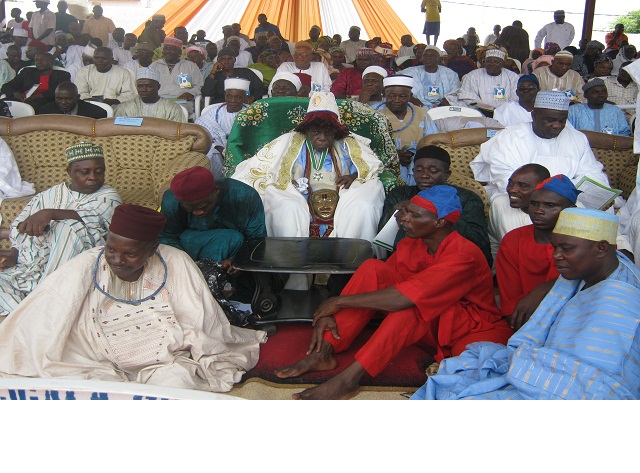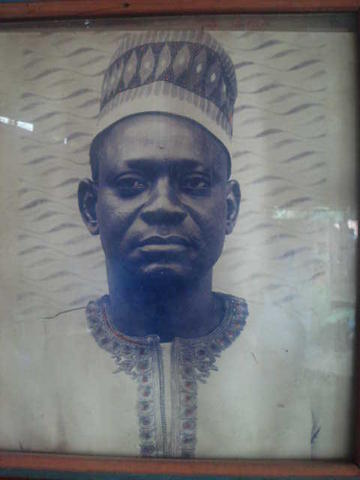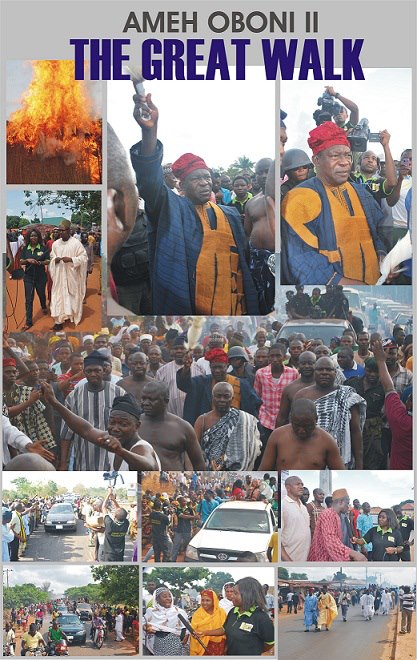
By Rev. Fr. Attah Anthony Agbali
The Fulani atrocities of sacking whole communities, killing and ripping of wombs of pregnant women and herding captives into slavery was also very much everywhere known since the 1832 expedition (Oldsfield, Narrative, 21-22, 85; Ephinstone, 1921: 38, 45). The threat was everywhere. Even the Attah seemed to have welcomed the presence of the 1832 expedition with the hope of getting their assistance should the Fulani strike his domain, and also making Idah a center of trading relations with the British authorities (Oldsfield, Vol 2: 234-236).
In 1841, in Idah, the commissioners of the Niger Expedition had met some Islamic scholars and ritual experts in the employment of the Attah of Igala (Allen and Thompson, 1968: 230). Presumably, these were Fulani or related to the Fulani agents that conquered and transformed the Hausa States into Fulani suzerainty about half a century earlier. It seems that this trend was not new among the Igala royal court. It is alleged that during the war of independence between the Igala and the Jukun forces, that the Attah Ayegba engaged the service of a Nupe mallam or marabout, Edegi. Edegi’s services was demanded toward defeating the militarily assaultive Jukuns (Seton, 1908:270-71; Clifford, 1936: 399). Whether Edegi has Fulani roots or connections, is conjectural at this point.
Further, Okwoli equally placed the invitation of Attah Ayegba to the Kano Islamic mallams to aid his war efforts against the Kwararafa forces in the 17th century (1996:74-75). While, Fulani had started seeping into Kano about this, it is not clear whether those invited were of Fulani descent. Yet, this is probable given Kano been a major trade routes and had interactions with the old Mali and Songhai traders.
The Fulani had struck at the Attah’s power by emasculating the towns that hitherto paid tributes and were under his kingdom, such as Panda, the Kakanda and Oworo (Abubakadir, 2013: Clifford, 1944: 107-108). This led to a massive demographic shift, movement, and displacement that ushered the political, economic, and demographic reconfigurations of many Niger-Benue societies.
At this time, the towns bordering or under Nupe colonizing or conquest influence had begun experiencing the massive onslaught, military assaults and conquests, as well as the growing presence of Fulani Islamic scholars, ritual experts, and many had begun to be converted to Islam as a result of these factors. It seemed the trend was increasing with Islamic scholars present, some of whom have ties to other political sovereigns, or were in the service of the Igala sovereign, the Attah.
For instance, in Idah, in 1857, the Hausa interpreter for Samuel Crowther, ran into the son of the Emir of Zaria in Idah, while the expedition had anchored there. The Emir’s son was an old acquaintance prior to the interpreter’s enslavement. The Emir’s son, was an Islamic teacher in the town, who hoped to be there for another year prior to his returning to Zaria. They are also in Idah at this time Nupe, and probably allied Fulani, who were Islamic adherents (Crowther and Taylor, 2010 [1858]: 52). The Zaria Emir’s son was probably the son of either Mohammed Sani or Abdulsalami or Audusalami or Abdulahi the two Fulani Emirs that ruled the Zaria emirate shortly before or during that timeframe (see Smith, 1961: 281-82).
All these indicate the Igala was the crosscurrents of diverse and far-ranging intercultural encounters and widening interactions with Fulani personalities or agents in the late precolonial period. Hence, it is clear that at this time the area of the Niger-Benue was a strategic and epicenter of tremendous multicultural, interethnic, religious, and cross-currents. The Igala Kingdom of Idah was very affected by these trends to a certain degree.
Such trends functioned in the spread of Islam through the agency of Fulani expansion and actors (some of whom even if not Fulani had adopted Fulani identity and badges of authority and honor) in their interactions and encounters within the Niger-Benue Confluence region. In fact, by 1857, there was a recorded increase of Arabic schooling in Idah (Crowther and Taylor, 2010 [1858]:56).
While stranded, following the grounding of the Day-spring, they met traders from Busa, who were coming in from Ilorin, and further. These traders also carry out trading relationship as far as Ghana, and were fluent in the Ashanti language (Crowther and Taylor, 2010 [1858]: 102-103). They also met an Egyptian Arab merchant who lived in Ilorin and had traveled widely within the region and with massive capital and property in Kano and Ilorin.
These incidences and interactions is seemingly at the root of the diffusion of goods deriving from far afield into the Niger-Benue confluence and through the ongoing commercial relationships within and beyond this region that co-opts an extensive network through the Niger and Benue, and southward to Igbo and Bonny locations.
Earlier, in 1841 Usman Zaki had also sent to the Attah of Igala requesting to provide security in safeguarding the free access and conduct of commercial activities on the Niger by offering his assistance toward finding the killer of Mr. Alfred Carr, a British agent killed without trace presumably by tribes on the lower Niger (Crowther, 1970 [1856]: 39; Ifemesia 307). In 1859, it was alleged that the Attah had sent emissaries to the Fulani usurper of the Nupe dynasty, Masaba, with gifts to entice him not to send any military excursion into Igala territories (Abubakadir, 2013).
From the 1850s to the late 1890s, the forces of the Fulbe-Nupe Jihadists, and their allied non-Fulani depicting Fulani identity as a paramount badge of honour (Kolapo, 1999) had so destructively and violently ransacked many communities on the banks of the Niger-Benue confluence area of Lokoja, so much that the Bassa Nge (a Nupe group) and Bassa Komo from the areas of Umaisha, Nasarrawa fled, taking refuge in Igala territories (Byng-Hall, 1908; Clifford, 1944). Other groups that fled into Igalaland for protection under the Attah of Idah (Igala) were varying Igbirra groups already (Clifford, 1936: 399-404; Clifford, 1944: 107-108; Elphinstone, 1921: 38; Maiyaki, 2013).
These Fulani onslaughts and the circumstance they conduced all functioned to reconfigure and transform the structural contours of Igala traditional control. Later, these refugees would equally seek their autonomy by trying to cast off the yoke of the hegemonic dominance and royal authority of the Attah of Igala. Such attempts at fencing off the authority of the Igala traditional leadership provoked direct military and internecine confrontations against the Bassa Komo.
The Bassa, organized military resistance, in alliance with confreres’ mercenaries invited from across the River around Umaisha in Nasarawa allied to on occasions even routed the Igala forces disengaging their military dominance in the 1880s through the 1900s. The arrival of the British and their Pax Britannica (Peace of the British) brought an end to such altercations, and with the British siding with the Bassa against the Attah whom they tagged as a tyrant against a minority group (Clifford, 1936; 399; Clifford, 1944: 107-109).
Masaba’s forces had foraged into the area of Adda Kuddu (site of the present Lokoja territory) that the Attah in the treaty of September 6th, 1841 had earlier ceded to the British expedition for a model farm settlement. By the late 1800s Fulani had made peripheral incursions into the Igala territories on the Benue such as the Bagana and Abejukolo areas. Fulani taking over and control of the Niger river trade routes and markets, as well as these selective incursions into Igala territories also aided in further weakening the already declining Igala state fortunes and overall political control. This critically affected the Attah’s effective traditional governing authority over his vast territories (Clifford, 1936: 399-404).
In fact, following the Fulani destruction of the Ebira Kingdom of Panda, some Igbirra groups sought the protective refuge of the Attah of Idah (Igala). It was these movements that produced many Ebira settlements on their trails (Elphinstone, 1921: 48), and in the Igala territories of Itobe and Mozum (Okwoli, 1973; Clifford, 1944).
While, the Igala experience with Fulani assault was minimal, close by within the region, the Igbirra and the Okun were not so lucky with Fulani Jihadists causing massive havocs and resultant social upheavals. On their trails, the Fulani fostered gory destructions, hideous sights of brutal killings, including the putting to death of suspected pregnant women by ripping their wombs open. They also engaged in brutal slave raiding, and arson of residential settlements (Okene, 2001; Kolapo, 1999; Elphinstone, 1921: 35). Adam Ahmed Okene, notes that the Igbirra Okene “Ajinomoh” forces, around the 1860s and 1880s, vociferously resisted the persistent affronts and ferocious onslaughts of the Fulani-Nupe decimating forces, often directed from Bida and llorin (Ahmed, 2001: 28-35). In fact, one of the great heroic warriors of this resistance was Attah Omadibi Abanika of mixed Igbirra and Igala parentage (see Usman, 1987: 108)
In 1968, Wole Soyinka recounted the story of the killing of an Igala young man in Maiduguri following the Araba killings in northern Nigeria that preceded the Nigerian-Biafran civil war. The local Hausa-Fulani-Kanuri youths mistaking him for Igbo as they mistook his Igala name Oche for the Igbo name “Uche” Intruded into his residence awhile away at work. Encountering his brother in the residence they killed him (1972). Again in 2000, caught in the intercept of an ethnoreligious crises in Kaduna, an Igala Moslem business man from Anyigba, Mohammed Alidu was mauled to death outside his hotel residence by diehard Hausa-Fulani youth mobs linked to fundamentalist Islamic causes. He died brutalized in the hands of his confreres in the same faith, while pleading for his life. His crime he was not Hausa/Fulani, though he was Moslem.
Another, Igala, a young man and Christian minister, Rev. Joshua Adah originating from the Ankpa area serving as a missionary to the poor in Taraba State was brutally killed. He was viciously butchered to death by Fulani herdsmen in Bantaje, Taraba on January 23rd, 2015 following his vehicle’s breakdown in the area. Some suspect the murderers were members of the dreaded Boko Haram militant sects and fundamental Islamic terrorists (Okonkwo, 2016, Akimotu, 2016). Increasingly, there are acclaimed suspicions and alleged confessions that the vicious Fulani herdsmen are allied with or are shadowy members of the Boko Haram militant sects (Omonobi, 2014).



This is an objective account in which the writer kept his legitimate anger at bay.
Conquest and brutal taking over of peoples’ ancestral domains might be have been fashionable in the times past. It is no longer a way to go at this time.
Any affectation to ethnic or racial supremacy is unsconscionable, morally reprehensible and downright savagery.
Thank you, dear Fr. Anthony for doing diligence to history.
OSHALOTO Joseph Tade